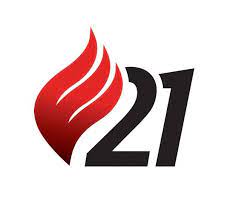Event Type
Papers Read
Start Date
19-6-2023 3:30 PM
End Date
19-6-2023 4:15 PM
Description
These papers are restricted to conference participants and are not available for download. These essays will be published at a later date in a volume from ORU Press.
This study is an examination of the way in which the Great Commission (Matt 28:18 – 20, Mark 16:15 – 18) was received and understood in the Patristic period. Its most important finding is that there is little to no emphasis on these commission passages in this period. The first section of the study deals with the few citations to this passage that could be found, while the remainder of the paper seeks to explain the lack of emphasis on the Great Commission in this period. Three explanations are offered to account for this lack. The first is that the Church in this period considered that the work of evangelism had been done. As far as they knew, the gospel had gone into all the world. And the “known world” was at least nominally Christian. The second is that because of this, the great need of the church in this period was not evangelism, but discipleship. It was in this period that the Church’s greatest battles with heresy were fought and won. The third is the nature of the Commission itself. The Church took seriously its mandate to teach and disciple nations rather than merely individuals. The Church in this period recognized what the Church of today needs to reclaim; that its purpose is not merely the propagation of the message of the gospel but the establishment of an embassy of heaven on earth. The final section of this study explores what may be learned for the task of evangelism and discipleship by today’s Church, especially in a period of intense focus on the task of global evangelism by the Spirit Empowered collective of Churches.
The Great Commission in the Great Tradition
These papers are restricted to conference participants and are not available for download. These essays will be published at a later date in a volume from ORU Press.
This study is an examination of the way in which the Great Commission (Matt 28:18 – 20, Mark 16:15 – 18) was received and understood in the Patristic period. Its most important finding is that there is little to no emphasis on these commission passages in this period. The first section of the study deals with the few citations to this passage that could be found, while the remainder of the paper seeks to explain the lack of emphasis on the Great Commission in this period. Three explanations are offered to account for this lack. The first is that the Church in this period considered that the work of evangelism had been done. As far as they knew, the gospel had gone into all the world. And the “known world” was at least nominally Christian. The second is that because of this, the great need of the church in this period was not evangelism, but discipleship. It was in this period that the Church’s greatest battles with heresy were fought and won. The third is the nature of the Commission itself. The Church took seriously its mandate to teach and disciple nations rather than merely individuals. The Church in this period recognized what the Church of today needs to reclaim; that its purpose is not merely the propagation of the message of the gospel but the establishment of an embassy of heaven on earth. The final section of this study explores what may be learned for the task of evangelism and discipleship by today’s Church, especially in a period of intense focus on the task of global evangelism by the Spirit Empowered collective of Churches.





